Best pasta in Trastevere. It’s more than a tourist catchphrase—it’s a love letter to Rome’s most charming neighborhood. People flock from every corner of the world to this maze of cobblestone lanes and old walls. Here, pasta isn’t just food. It’s a heartbeat. Are you hungry for more than a meal? Settle in. Let’s explore why Trastevere is the city’s true pasta paradise.
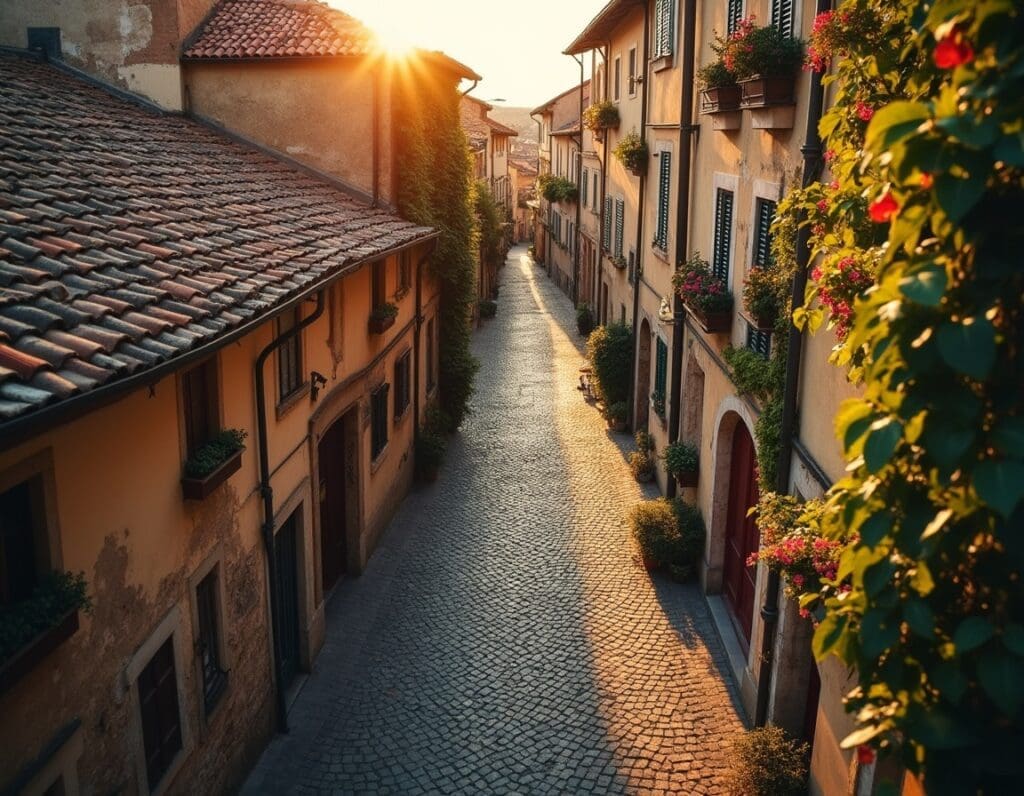
Contents
- 1 Why Trastevere is Rome’s Pasta Paradise
- 2 What Makes Trastevere Stand Out for Pasta Lovers?
- 3 A Brief History of Pasta Culture in Trastevere
- 4 The Local Pasta Scene: Hidden Gems vs. Famous Hotspots
- 5 How to Spot Authentic Roman Pasta in Trastevere
- 6 1.Ristorante Da Enzo al 29: Classic Roman Flavors Unveiled
- 7 2.Spirito di Vino: Where Tradition Meets Gourmet Pasta
- 8 3.Glass Hostaria: Modern Twists on Timeless Pasta Recipes
- 9 4.Tonnarello: The Art of Pasta alla Carbonara
- 10 5.Pasta e Vino Osteria: Handcrafted Pasta with a Local Touch
- 11 What Makes Trastevere Stand Out for Pasta Lovers?
- 12 A Brief History of Pasta Culture in Trastevere
- 13 The Local Pasta Scene: Hidden Gems vs. Famous Hotspots
- 14 Vegan and Gluten-Free Pasta in Trastevere: Yes, You Can!
- 15 Best Pasta for Couples: Romantic Spots for a Pasta Date Night
- 16 Cozy Lunches: Trastevere’s Best Pasta for a Midday Break
- 17 Street Food Pasta: Grabbing a Quick, Delicious Bite
- 18 Where the Locals Go: Insider Tips on Lesser-Known Pasta Havens
- 19 What to Pair with Your Pasta: Wine and Drinks Guide
- 20 Tips for Booking a Table at Popular Pasta Restaurants
- 21 Pasta-Making Classes: Take a Piece of Trastevere Home
- 22 Conclusion: Picking Your Perfect Pasta Adventure in Trastevere This Year
- 22.1 1. Where to find the best pasta in Trastevere?
- 22.2 2. Best pasta restaurants in Trastevere, Rome?
- 22.3 3. Trastevere pasta restaurant recommendations?
- 22.4 4. Top-rated pasta in Trastevere?
- 22.5 5. Affordable pasta spots in Trastevere?
- 22.6 6. Best pasta dishes in Trastevere?
- 22.7 7. Homemade pasta Trastevere restaurant guide?
- 22.8 8. Best pasta in Trastevere for couples?
- 22.9 9. Pasta tasting tour in Trastevere, Rome?
- 22.10 10. Gluten-free pasta in Trastever,e Rome?
- 22.11 11. Locals’ favorite pasta places in Trastevere?
- 22.12 12. Where do locals eat pasta in Trastevere?
- 22.13 13. Top pasta restaurants near Piazza di Santa Maria?
- 22.14 14. Romantic pasta dinner in Trastevere, Rome?
- 22.15 15. Best fresh pasta in Trastevere, Rome?
- 22.16 16. Authentic Italian pasta in Trastevere?
- 22.17 18. Best pasta near Trastevere hotels?
- 22.18 19. Must-try pasta places in Trastevere?
- 22.19 20. Vegetarian pasta options in Trastevere?
Why Trastevere is Rome’s Pasta Paradise
Trastevere teems with locals and travelers craving pasta done right. Its location across the Tiber River gives it a vivid spirit, different from the busy center. The area’s ancient trattorias and new bistros each serve up distinct takes on classic Roman pasta. Names like Cacio e Pepe and Amatriciana hold weight here.
Roman cuisine is bold but simple—think Pecorino Romano, guanciale, and fresh egg pasta. In Trastevere, these dishes are everyday magic. You don’t need reservations at every place. Just wander and let smells guide you. Pasta is made with care, often in the same kitchens for decades. In this neighborhood, you feel the history in every bite.
What Makes Trastevere Stand Out for Pasta Lovers?
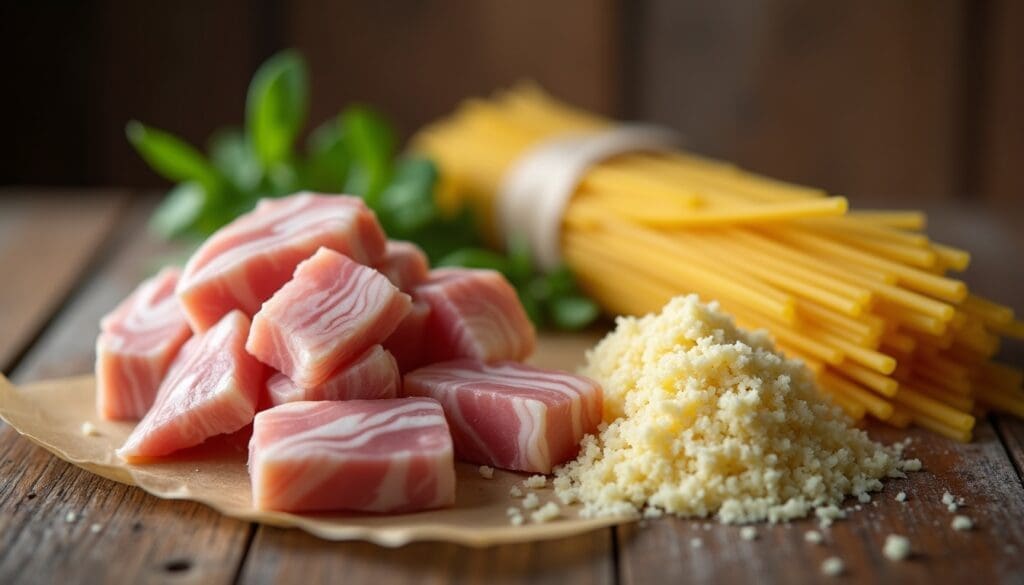
There are hundreds of pasta joints in Rome. But Trastevere wins over seasoned foodies. Why? For starters, family-run kitchens dominate the area. Recipes pass from grandma to grandchild. Chefs put honor before trends.
Trastevere isn’t about flashy menus. It’s about the taste you remember. Want to try the best carbonara? Or hand-rolled tonnarelli? This district outshines other Roman quarters for richness, tradition, and sheer variety.
You’ll spot fresh ingredients in every sauce. Markets like Piazza San Cosimato supply local produce, cheese, and olive oil. Even the air feels different—rich with the scent of simmering tomato and pork.
A Brief History of Pasta Culture in Trastevere
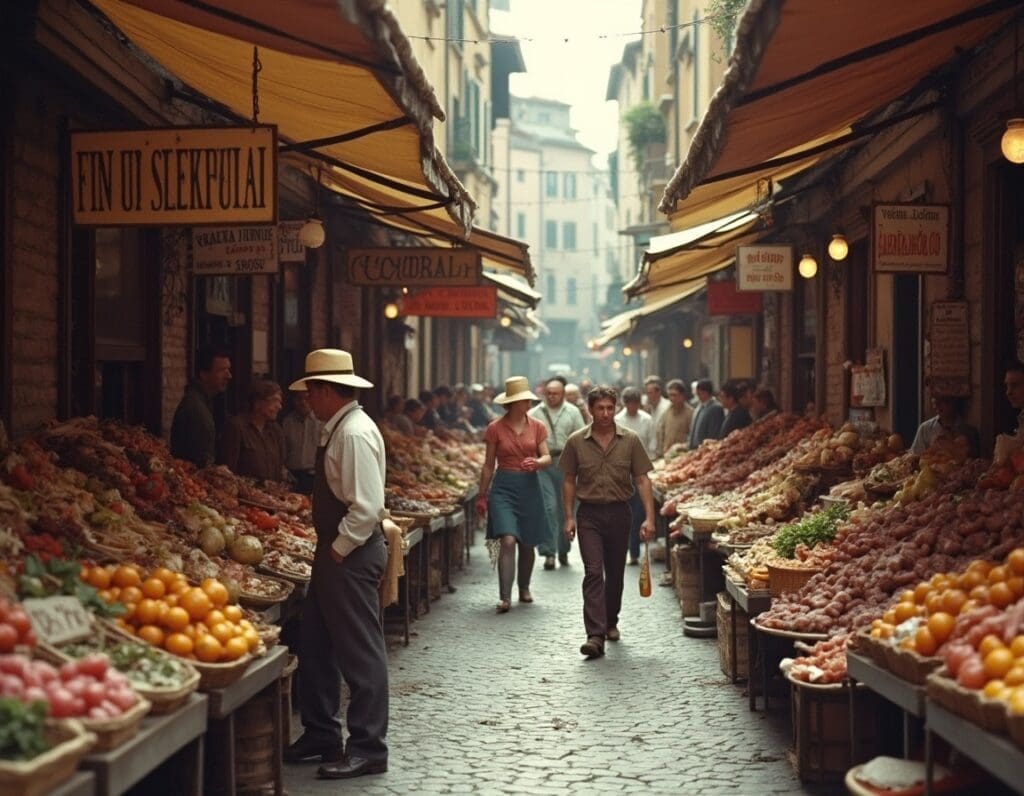
Trastevere’s love for pasta started centuries ago. Back in ancient Rome, this was a fisherman’s neighborhood where people ate what they could catch or find. Later, the Jewish community added its flavors, enriching the local culinary scene. Over time, the food scene blended old Roman and Jewish recipes, making Trastevere a hub for outstanding pasta restaurants.
Romans pride themselves on cucina povera—simple food from humble roots. Trastevere kitchens showed resourcefulness, making pasta from flour, water, eggs, and little else. The result? Legendary dishes like Gricia, Amatriciana, and Cacio e Pepe.
During the 20th century, trattorias — like the famed Osteria da Meo Patacca — popped up along the winding alleys. Tourists soon caught on. By the 80s and 90s, Trastevere was a global magnet for those who craved authentic Roman pasta.
The Local Pasta Scene: Hidden Gems vs. Famous Hotspots
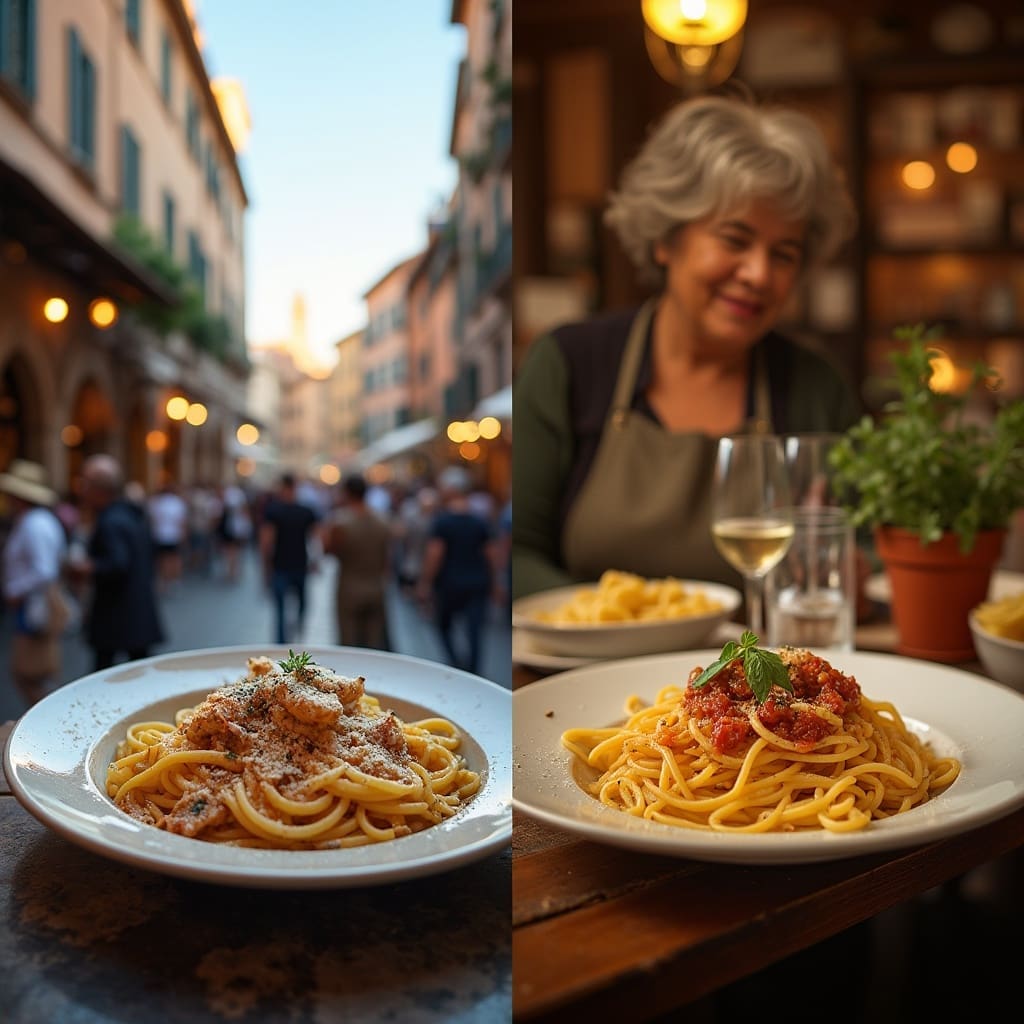
Not all pasta spots in Trastevere get the same press. Some are known worldwide, like Tonnarello and Da Enzo al 29. People line up for hours to taste their carbonara or amatriciana. But some of the tastiest plates come from secret places.
Hidden gems like Osteria der Belli serve Sardinian-inspired pasta, while Antico Carlone offers a rustic, unpolished experience. Locals hold tight to their favorites, sharing tips only with friends.
Famous hotspots may feel busy, but many deliver the best pasta bowls in the world. You’ll often find prices a bit higher, but the joy in a perfect bowl of rigatoni alla carbonara can’t be priced.
Want the inside scoop? Ask a Trastevere native—they’ll give up the name of a basement trattoria, tucked beside the river, that even Google Maps struggles to find. For an authentic experience, consider booking a Trastevere food tour to explore both famous and hidden pasta spots with a local guide
How to Spot Authentic Roman Pasta in Trastevere
Eating pasta like a true Roman starts with knowing what to look for. Authentic Roman pasta doesn’t drown in sauce. It’s never overloaded with cream. Instead, flavors are sharp, defined, and balanced.
Look for guanciale—not bacon—and Pecorino Romano cheese. Eggs should give carbonara its creamy texture, never cream itself. Fresh pasta shapes matter too. Tonnarelli, rigatoni, bucatini, and fettuccine are the local stars.
A real trattoria won’t serve pasta with chicken. If you see that, walk away. The best restaurants take pride in tradition. They might serve old family recipes, or put their name behind every plate.
Always value personal touches. Many kitchens knead their own dough early each morning. Some even let you peek behind the scenes to witness pasta-making magic.
1.Ristorante Da Enzo al 29: Classic Roman Flavors Unveiled
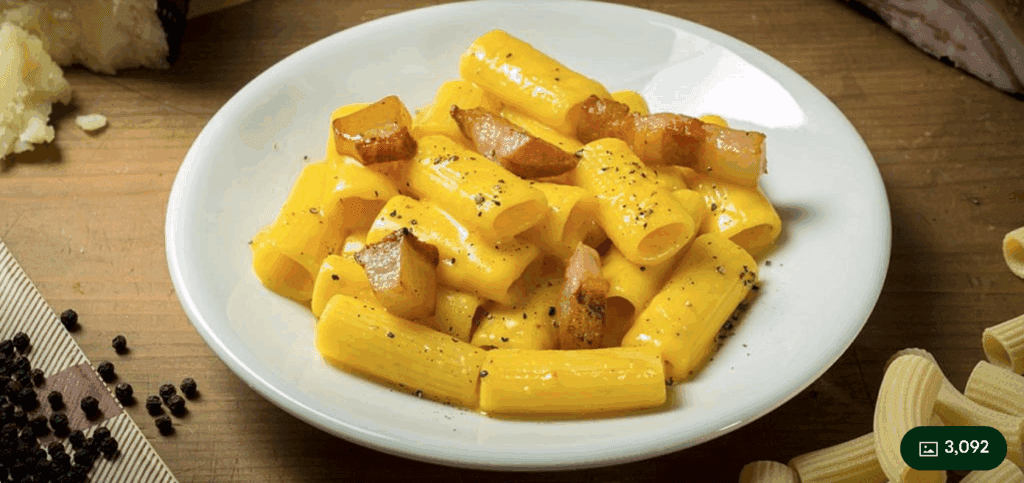
Da Enzo al 29 sits on Via dei Vascellari, revered by both locals and food critics. The menu is as Roman as it gets. Dishes like cacio e pepe, carbonara, and amatriciana highlight the best of local ingredients.
Expect pasta creamy, salty, and bold. The rigatoni alla carbonara is their greatest hit. Guanciale crackles, egg emulsion glistens, and black pepper bursts with character. Tomato sauces taste bright and honest. Make sure to pair your pasta with a glass from their handpicked Italian wine list.
Booking a table here is wise—lines are long, but the reward is true Roman comfort. Da Enzo al 29 remains a benchmark for authentic Trastevere pasta.
2.Spirito di Vino: Where Tradition Meets Gourmet Pasta
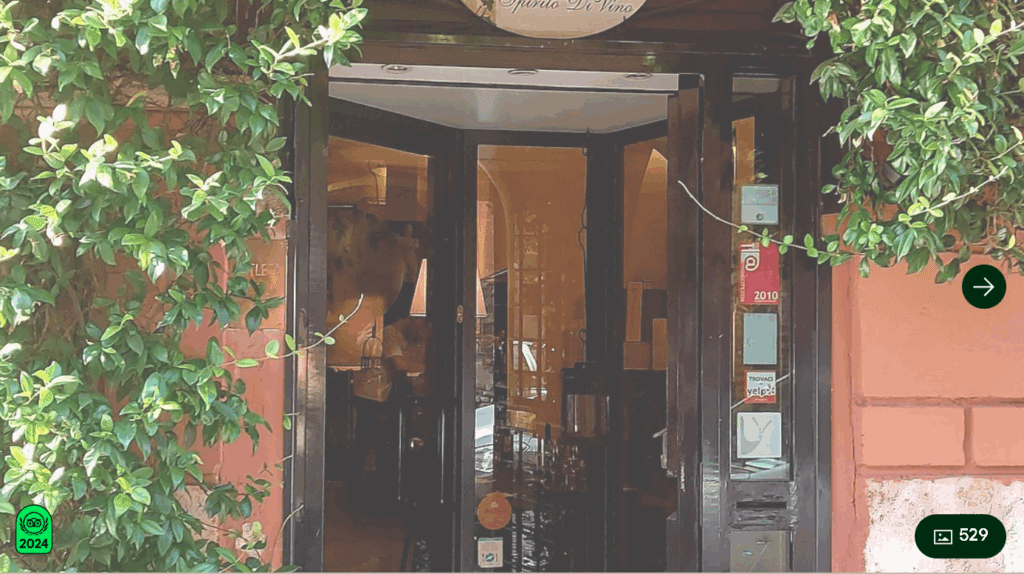
Spirito di Vino brings a thoughtful, almost poetic touch to Roman dishes. Housed in a 1,000-year-old wine cellar, the ambiance alone sells the experience. Chef Eliana Catalani weaves history and fine flavors at every table.
Here, classic pasta favorites receive subtle updates. Try the amatriciana, which uses slow-aged pork and ripe San Marzano tomatoes. The wine list impresses experts, stocked with reds from Tuscany, Lazio, and beyond.
Vegetarian pasta options get as much care as meat-based ones. Spirito di Vino represents Trastevere’s passion for combining old Rome with gourmet touches, elevating the familiar to unforgettable.
3.Glass Hostaria: Modern Twists on Timeless Pasta Recipes
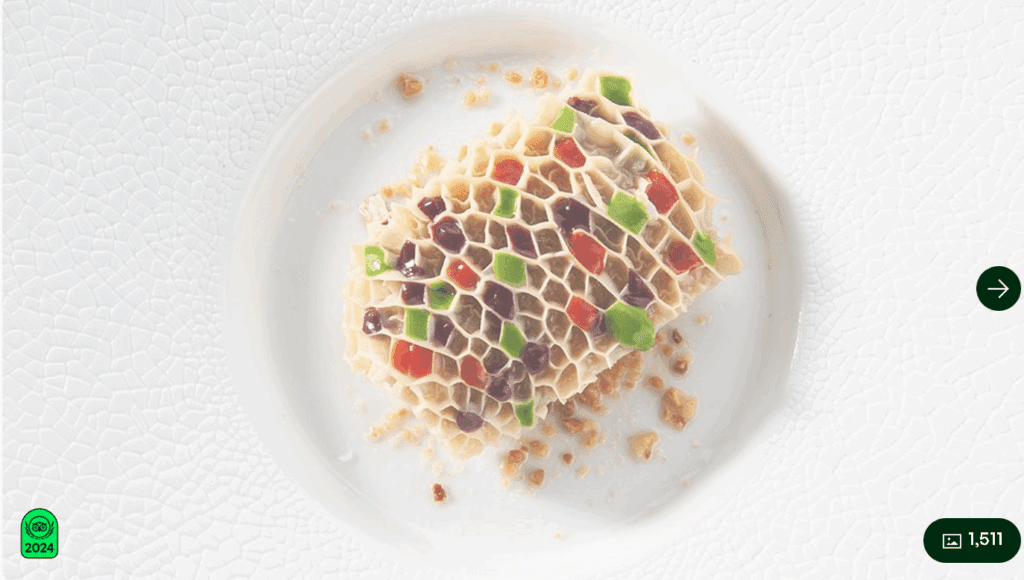
Glass Hostaria makes a big statement in a cobbled side street. Michelin-starred chef Cristina Bowerman received acclaim for her creative, boundary-pushing Italian cuisine. This isn’t your grandma’s pasta.
Expect wild shapes, unexpected fillings, and sauce combinations that challenge classic rules. One standout dish: smoked spaghetti with eel, green apple, and cream. The plating is photo-worthy, with color and symmetry as important as flavor.
Wine lovers have a field day here. Glass Hostaria’s cellar is legendary. Dishes pair perfectly with bold reds or crisp whites from all over Italy.
Reservations are a must. This spot is proof that Trastevere can balance old roots with new ideas.
4.Tonnarello: The Art of Pasta alla Carbonara
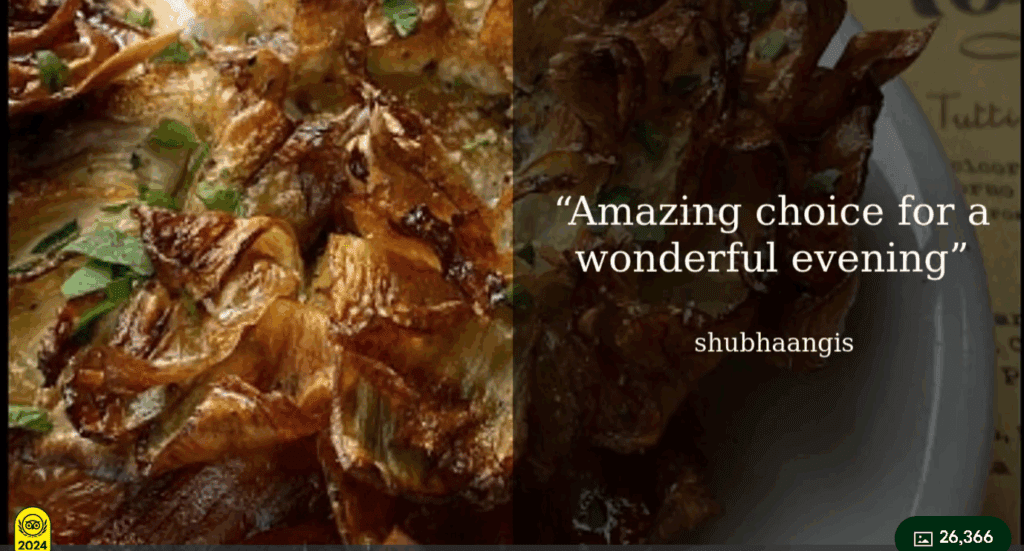
Few places in Rome have a reputation like Tonnarello. The restaurant takes its name from the thick, square-cut pasta that stars in many Roman recipes. Every day, chefs hand-roll the dough and cut the noodles.
True fans come to Tonnarello for the carbonara. It’s creamy—but never soupy—with flavors that hit deep and linger. Their secret? Fewer ingredients, higher quality. Guanciale sizzles, Pecorino Romano melds with egg, and pasta water ties it all together.
Tables fill fast, especially on weekends. Watch cooks work behind glass panels, churning out pasta by the dozen. Tonnarello stands as a temple to Rome’s most debated dish, winning hearts dish by dish.
5.Pasta e Vino Osteria: Handcrafted Pasta with a Local Touch
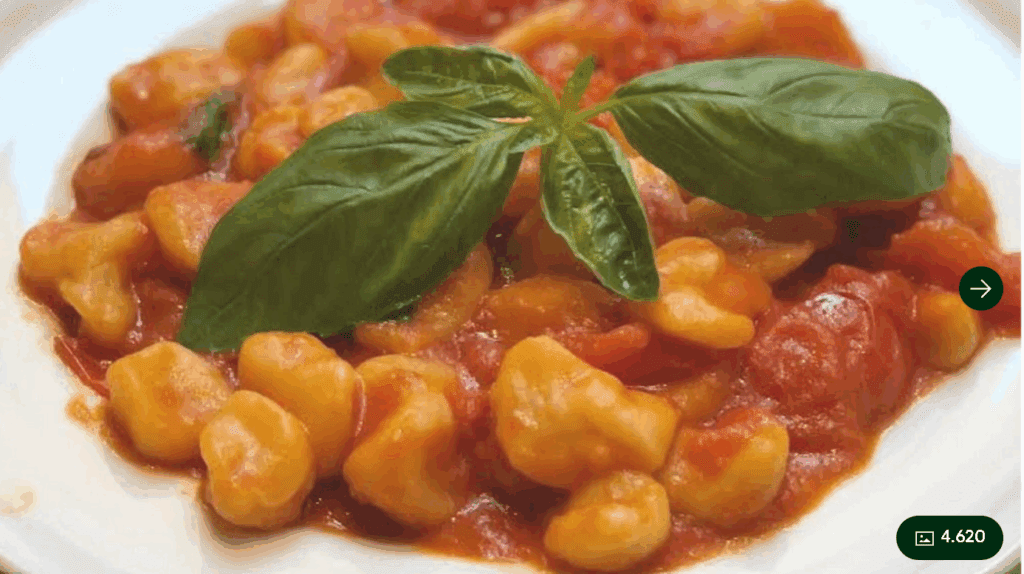
Pasta e Vino Osteria puts hospitality first. There’s no fuss—just warmth, smiles, and honest Roman cooking. Hand-rolled pasta is shaped on-site, filling the air with anticipation.
The menu changes with the seasons, but some favorites never leave. Try the fettuccine with truffle sauce or classic cacio e pepe. All ingredients come from the neighborhood markets. Sauces are made with care, letting natural flavors shine.
The wine selection is curated with locals in mind. Ask your host for pairings, and don’t skip desserts like homemade tiramisu. Pasta e Vino Osteria is a hidden haven for those who want a full, heartfelt Trastevere dining experience.
Best pasta in Trastevere tops every food lover’s wish list. The winding cobblestone lanes of this storied Roman quarter have seen centuries of food magic. Now, let’s get into what makes pasta in Trastevere unlike anywhere else.
What Makes Trastevere Stand Out for Pasta Lovers?
Trastevere is the heartbeat of Rome’s food culture. Here, every pasta plate tells a rich story. Locals say the secret lies in simple, fresh ingredients mixed with a generous dose of Roman passion.
You’ll taste sharp Pecorino Romano. You’ll smell the slow-cooked guanciale on carbonara. It’s not just the recipes; it’s the energy. Family-run trattorias line every alley. Each puts unique spins on beloved classics.
Award-winning restaurants, like Glass Hostaria and Spirito di Vino, are here. Yet, humble osterias and pastifici (pasta shops) thrive next to them. Expect love, community spirit, and superb plates at any price point.
A Brief History of Pasta Culture in Trastevere
Trastevere was once home to bakers, fishermen, and workers from across Italy. As early as Roman times, food stalls sold simple pasta dishes. Many traditions came from the surrounding Lazio region.
Over the centuries, certain pasta styles stuck. Cacio e pepe, amatriciana, gricia, and carbonara all trace their roots here. The area’s working class ate lots of pasta because it was satisfying and it was cheap.
Famous Italians, like the poet Trilussa, dined in these narrow lanes. Film stars in the 1950s made trattorias chic, and today, you can still feel that old charm in the cozy, quaint restaurants hidden behind ancient wooden doors.
The Local Pasta Scene: Hidden Gems vs. Famous Hotspots
Some names get all the attention. Tonnarello attracts crowds for classic Roman pasta baked to perfection. Glass Hostaria adds modern sparkle with Michelin-star flair.
But ask a local, and they steer you away from the busy squares. Instead, they mention places tucked in quiet side streets—like Pasta e Vino Osteria, or Da Enzo al 29.
- Busy hotspots: Ristorante Da Enzo al 29, Tonnarello, Spirito di Vino
- Hidden gems: Osteria Der Belli, Trattoria Pennestri, Pasta e Vino Osteria
Every place on this list serves handmade pasta. Try the same dish at two spots, and notice how it transforms from one kitchen to the next.
Vegan and Gluten-Free Pasta in Trastevere: Yes, You Can!
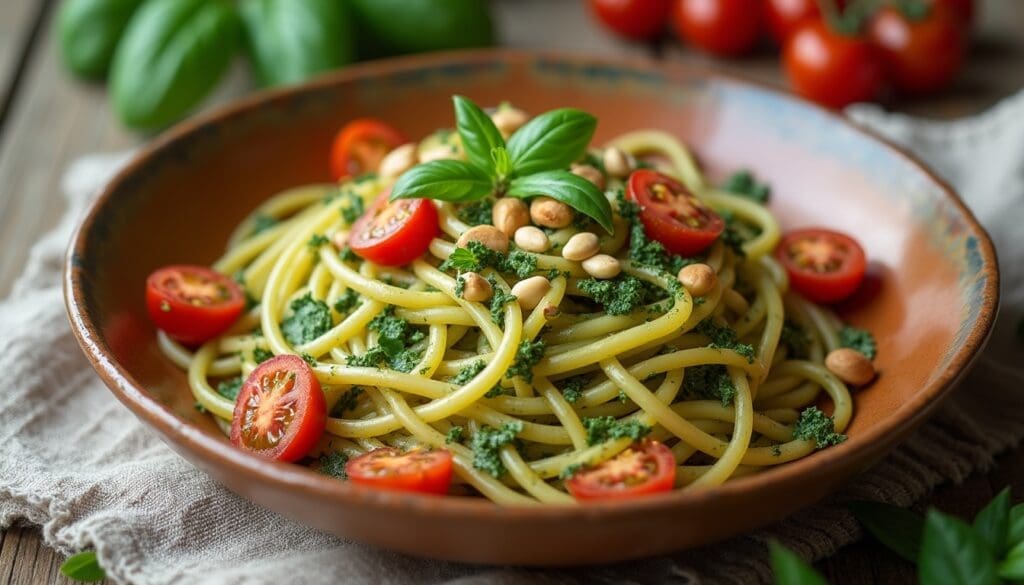
Plant-based and gluten-free diets don’t mean you have to skip pasta in Trastevere. More restaurants now offer alternative flours and vegan choices.
Try options like:
- Gluten-free gnocchi (made with rice or potato flour)
- Vegan amatriciana with smoked tofu
- Dairy-free cacio e pepe, using nutritional yeast
Places like Ma Va’? and Ops! Osteria Vegetariana make everything from scratch. Their allergy-aware staff can help with your needs.
Most osterias happily swap wheat pasta for corn or chickpea versions. Always ask!
Best Pasta for Couples: Romantic Spots for a Pasta Date Night
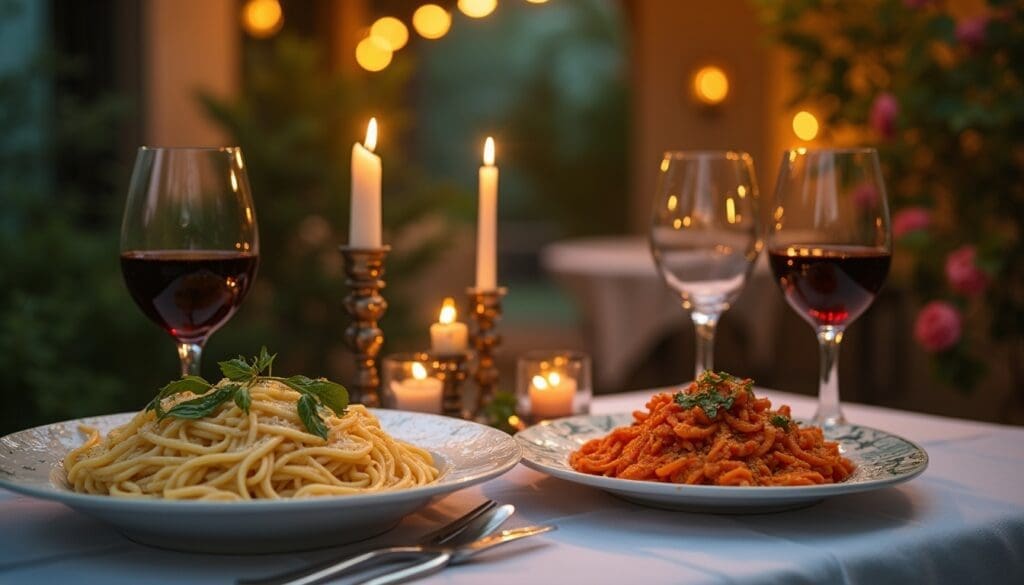
A candle-lit table on a red-tiled patio is the stuff of Roman daydreams. Here’s where romance blooms with good pasta.
Top romantic spots:
- Spirito di Vino: Wine cellars set the mood
- Glass Hostaria: Sleek elegance for special occasions
- Trattoria Pennestri: Warm, cozy with quiet corners
Order wine by the carafe. Share a plate of spaghetti. Finish with tiramisù for two. Watch street musicians play, and let the city sweep you away.
Cozy Lunches: Trastevere’s Best Pasta for a Midday Break
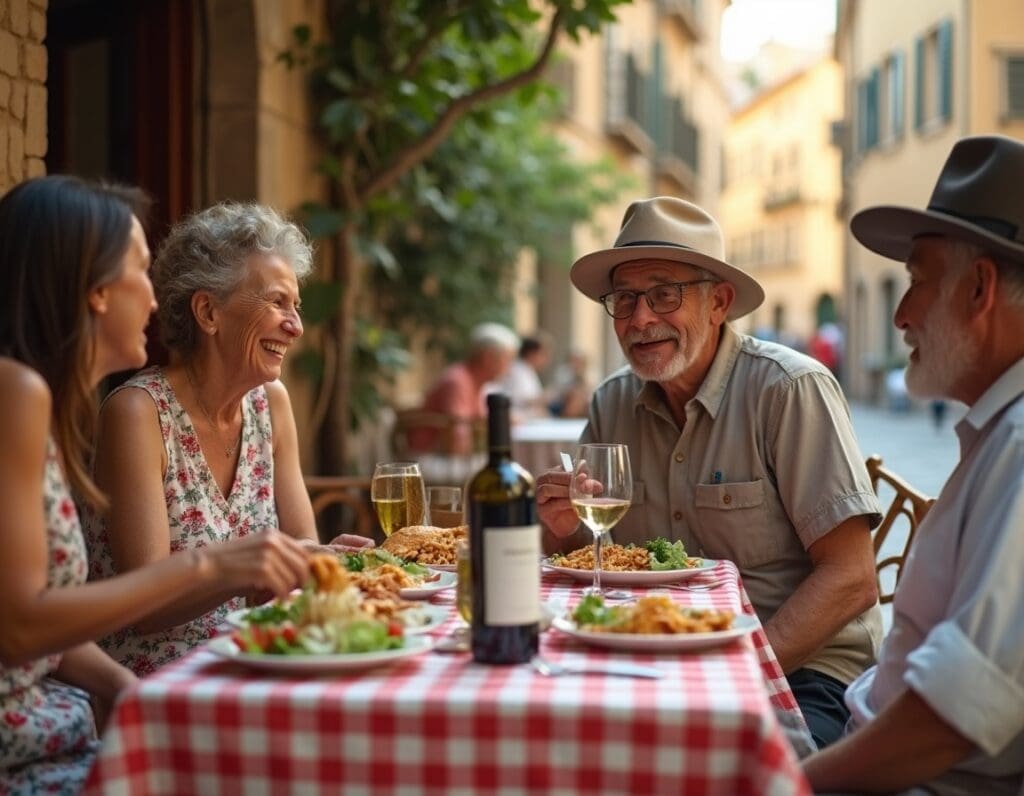
Trastevere buzzes at lunchtime. Locals crowd in for quick, soulful meals. Seek compact trattorias and friendly service.
Great lunch picks:
- Da Enzo: House-made rigatoni and a glass of wine
- Supplizio: pasta and one of their iconic supplì
- Osteria der Belli: Sardinian pasta with hearty sauces
Lunch menus are often cheaper and less crowded. Sit outdoors in a tiny piazza. Watch people pass by while you twirl your noodles.
Street Food Pasta: Grabbing a Quick, Delicious Bite
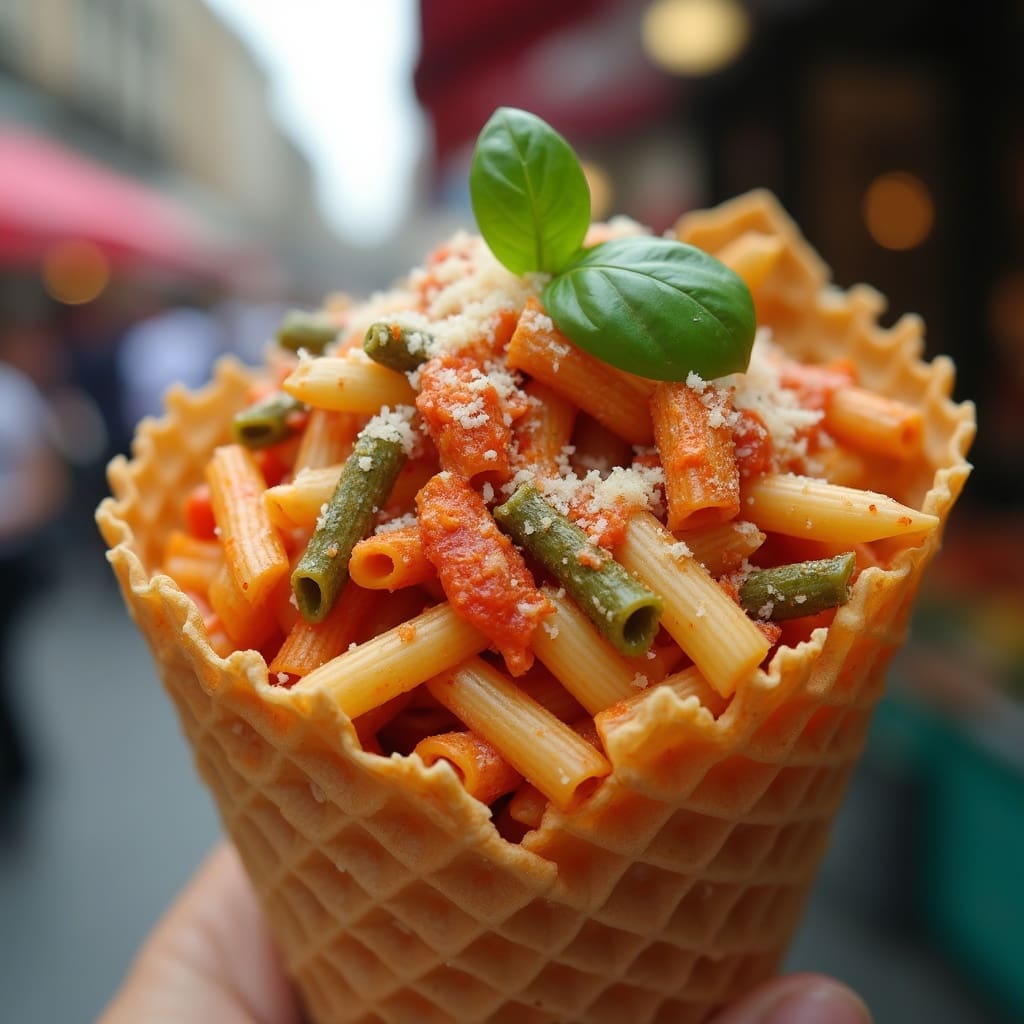
Street food thrives in Trastevere. You can now find pasta served to go—perfect if you want to walk and eat.
Look for:
- Pasta in a cone: spaghetti or penne, hot and sauced to go
- Pocket-size carbonara or amatriciana bite-sized “arancini”
- Fried pasta sticks (yes, it’s a thing)
Gourmet kiosks, such as Trapizzino and Supplizio, often sell pasta alongside classic risotto balls. Street eats are affordable and perfect for quick bites between museums.
Where the Locals Go: Insider Tips on Lesser-Known Pasta Havens
Tourist traps dot the main squares. For authentic pasta, go where locals eat or join a Trastevere food tour that takes you to the best local spots off the beaten path
Insider favorites:
- Trattoria Da Teo: Handmade pici pasta, no frills
- Osteria Zi’Umberto: Wild boar pappardelle—much loved by locals
- Le Mani in Pasta: Famous for seafood pasta, but their cacio e pepe is a sleeper hit
Visit during off-peak hours for the best experience. Staff greet regulars by name and often share the story behind each dish.
What to Pair with Your Pasta: Wine and Drinks Guide
Great pasta deserves the right wine. Roman reds—like Cesanese—match creamy sauces. Whites from Lazio, such as Frascati, work with lighter pasta dishes.
Pairs to try:
- Carbonara: Falanghina or Cesanese
- Cacio e pepe: Frascati Secco
- Amatriciana: Montepulciano d’Abruzzo
- Seafood pasta: Vermentino or Greco di Tufo
Ask your server for advice. Many spots have in-house sommeliers to guide you.
Not into wine? Craft beer and sparkling mineral water also pair well.
Tips for Booking a Table at Popular Pasta Restaurants
Plan ahead—demand is high, especially at famous places like Da Enzo or Glass Hostaria.
How to book:
- Check if the restaurant has online booking—some accept via TheFork or TripAdvisor.
- Call ahead the day before, especially for dinner.
- Arrive early or late to avoid crowds—lunch after 2 pm, dinner before 7 pm.
Some busy spots take names at the door and text when your table’s ready. Be patient—good food is worth the wait.
Want to reserve ahead with ease?
Read this blog best travel apps to find the useful app for foodies to find, book, and review pasta spots in Trastevere, and beyond.
Pasta-Making Classes: Take a Piece of Trastevere Home
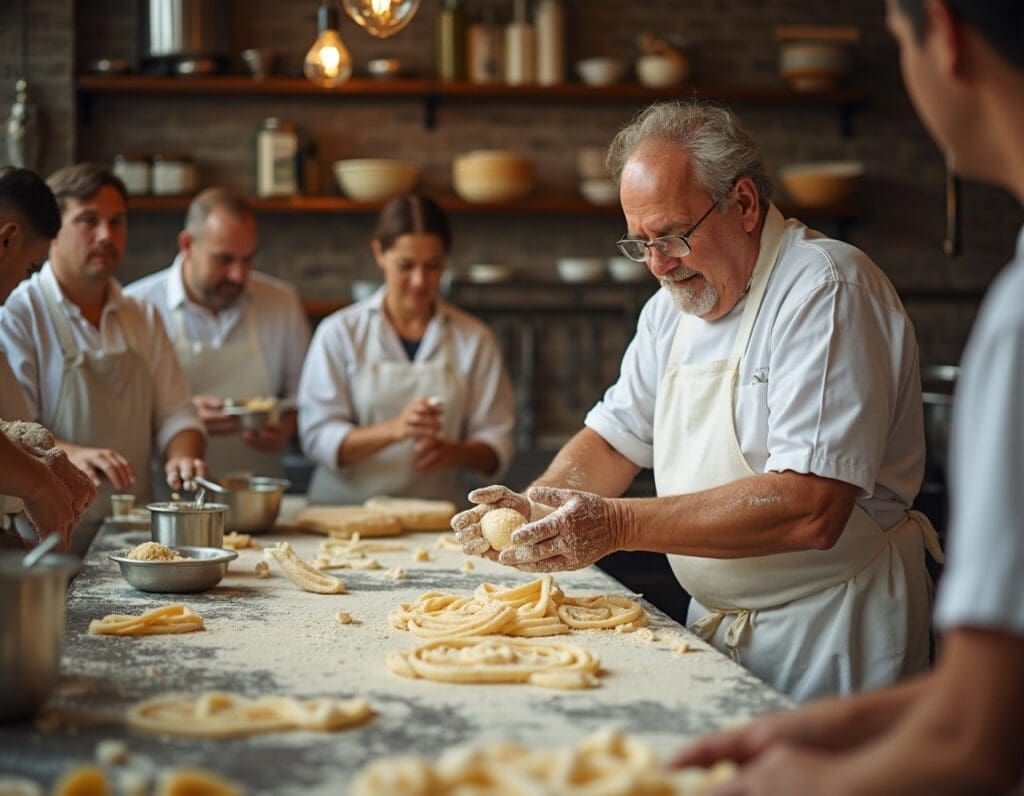
For a true Trastevere memory, join a pasta-making class. You’ll mix, knead, and roll your own sheets of dough.
Popular schools:
- Fabiolous Cooking Day: Famous group lessons
- Eat & Walk Italy: Pasta plus tiramisù classes
- Local chefs at Mercato di Trastevere
You’ll master classic shapes like fettuccine, gnocchi, and ravioli. Take home recipes to impress friends and family.
Conclusion: Picking Your Perfect Pasta Adventure in Trastevere This Year

Trastevere overflows with pasta charm—from candle-lit classics to modern showstoppers, hearty lunches to fresh bites in the street. Whether you crave rich carbonara at Tonnarello, gourmet twists at Glass Hostaria, or the cozy tradition of Da Enzo al 29, there’s a perfect pasta plate waiting.
Try a pasta-making class, sip local wine, and explore alleys for hidden gems. Ask locals for tips—they never steer you wrong. Each meal in Trastevere tells part of Rome’s love affair with pasta. This year, treat yourself to the best pasta in Trastevere and make your Roman adventure unforgettable.
1. Where to find the best pasta in Trastevere?
Head to Trastevere’s side streets near Piazza Trilussa. Look for a small, family-run trattoria
2. Best pasta restaurants in Trastevere, Rome?
Try Tonnarello, Osteria da Zi Umberto, or Trattoria Da Enzo al 29 for iconic pasta dishes.
3. Trastevere pasta restaurant recommendations?
Locals love Pasta e Vino, Spaghetteria L’Archetto, and Grazia & Graziella for authentic Roman pasta.
4. Top-rated pasta in Trastevere?
Tonnarello’s Cacio e Pepe and Da Enzo’s Amatriciana rank high on TripAdvisor and Google reviews.
5. Affordable pasta spots in Trastevere?
Budget-friendly picks: Mama Eat Street Food, Pasta Imperiale, and Osteria der Belli.
6. Best pasta dishes in Trastevere?
Don’t miss Carbonara, Gricia, and Truffle Tagliolini—local favorites across most Trastevere menus.
7. Homemade pasta Trastevere restaurant guide?
Try La Tavernaccia, known for handmade fettuccine and slow-cooked sauces made fresh daily.
8. Best pasta in Trastevere for couples?
Antico Arco and Spirito Di Vino offer candlelit dinners and high-end pasta dishes perfect for two.
9. Pasta tasting tour in Trastevere, Rome?
Join a guided pasta tasting tour through Trastevere to sample multiple dishes from top-rated spots.
10. Gluten-free pasta in Trastever,e Rome?
Mama Eat and Rifugio Romano offer gluten-free pasta made with care and flavor.
11. Locals’ favorite pasta places in Trastevere?
Locals often head to Da Teo and Le Mani in Pasta—both known for authentic, unpretentious meals.
12. Where do locals eat pasta in Trastevere?
Locals avoid touristy streets and dine in quieter alleys. Taverna Trilussa is a neighborhood gem.
13. Top pasta restaurants near Piazza di Santa Maria?
Nearby favorites include Grazia & Graziella and Nannarella, just steps from the piazza.
14. Romantic pasta dinner in Trastevere, Rome?
Ristorante Aroma di Mare and Osteria del Belli set the scene with views and handmade pasta.
15. Best fresh pasta in Trastevere, Rome?
Egg pasta dishes at La Tavernaccia or Trattoria Pennestri are made daily and served hot.
16. Authentic Italian pasta in Trastevere?
Da Enzo al 29 and Tonnarello are favorites for their traditional Roman pasta and homey feel
18. Best pasta near Trastevere hotels?
If you’re staying nearby, check out I Vascellari or Eggs Roma—both close and top-rated, and find nearby Trastevere hotels on Hotellook.
19. Must-try pasta places in Trastevere?
Start with Tonnarello, Le Mani in Pasta, and Osteria da Zi Umberto—you won’t regret it.
20. Vegetarian pasta options in Trastevere?
Most trattorias offer vegetarian ravioli, pesto pasta, or truffle tagliolini—just ask the server.


